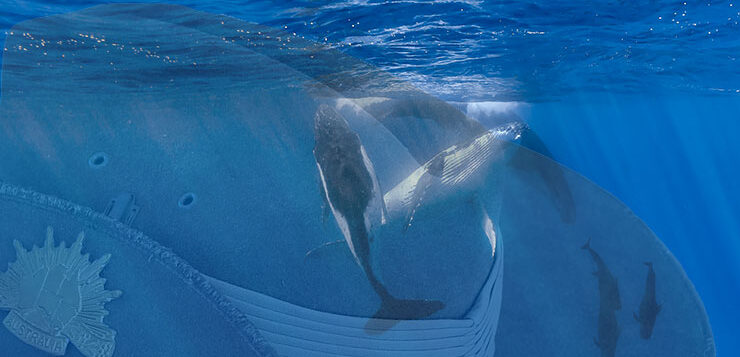It’s a good thing to ‘never forget’ the atrocities of our past, writes Fiona Carberry. But why do we never seem able to learn from them as well?
The Anzac Day dawn service is well and truly over. Wreaths have been laid, a bugler has played the Last Post, a minute’s silence has passed to commemorate events of long ago and far away — the Australian and New Zealand soldiers landing on the beach at Gallipoli on this fateful date in World War I, ‘the war to end all wars’.
More than 2,000 men who landed at Gallipoli were dead or injured by the next morning. Lest we forget.
This month, there’s news of another beach landing — several pods of about 160 pilot whales beached in the mouth of Toby Inlet near Geographe Bay, in the south west of Western Australia.
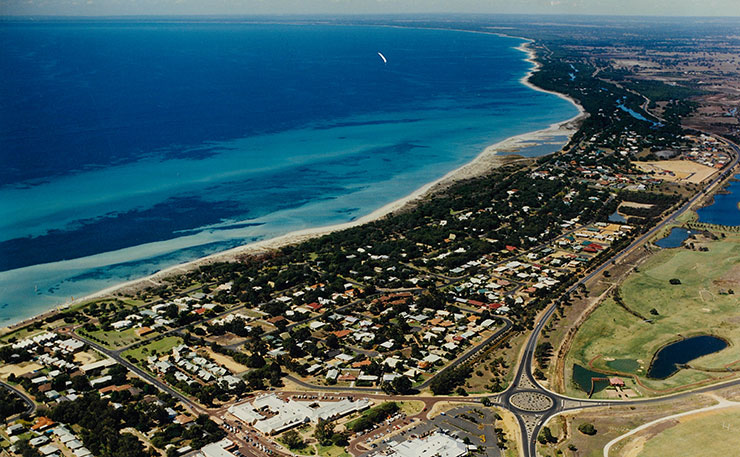
It’s not the first time that whales have been stranded in these waters. Sadly, 26 of the stranded pilot whales died today; 100 headed out into the deeper waters of the Indian Ocean; a calf became separated from its mother and is unlikely to survive without her.
My mind flashes back to an exhibit in Albany’s Historic Whaling Station — a container with the preserved foetus of a whale calf whose mother was slaughtered by whalers. The blood of harpooned whales gushed into the Southern Ocean around Albany until 1978, when it became the last whaling station in Australia to close.
After more than a century of commercial whaling, humpback whales were an endangered species; it took almost 60 years for the population to sufficiently recover to be taken off the threatened species list.
All whales are now protected in Australian waters, but some species, such as southern right whales and blue whales are still threatened. Lest we forget.
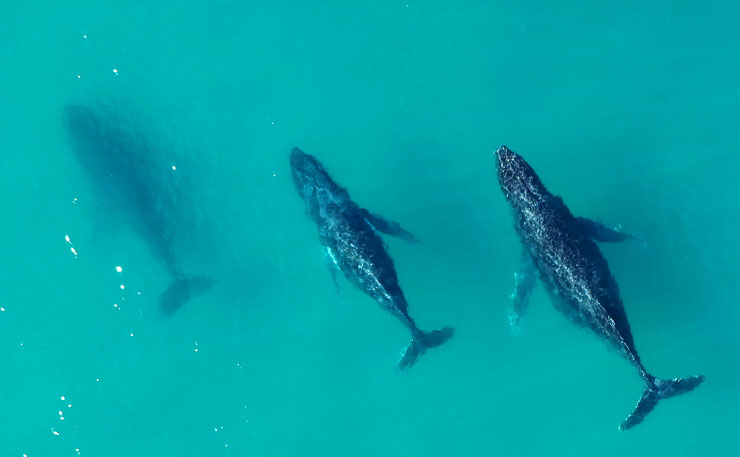
I go walking around the neighbourhood tracing my usual circuit, past the dog park, through Jirdarup bushland, heading south alongside the sprawling technology park. Many of the native shrubs planted only a couple of years ago to cover the kilometre long sandy, wide verge are discoloured brown; casualties of Perth’s hotter and much drier than average Summer and Autumn.
Rainfall in March was a mere eight percent of the long-term average, and in April it fell to three percent.
At the roundabout near Curtin University, I turn right, walking past the evergreen golf course with a fountain spraying water in a large pond. I think about my father-in-law, Bill, a keen golfer, who would’ve turned 95 today. The day of his November funeral, it was 37 degrees in Sydney; the family headed to the beach for a late afternoon swim after his burial.
In Bill’s long lifetime, global average temperatures reached 1 degree above pre-industrial temperatures for the first time. Since he died, we’ve had the first days where global average temperatures exceeded 1.5 degrees and 2 degrees (2023) above the pre-industrial baseline.
The planet is over-heating fast.
Walking on, the smell of mounds of mulch at the local council’s recycling depot wafts around me. The ground is covered with pine needles and cones, and honky nuts from the mature trees lining the roadway. The smell of petrol fumes in my nostrils from mid-morning public holiday traffic is momentarily replaced with the sweet honey scent of the yellow flowering acacias. As I cross another road, a noisy flock of Carnaby’s cockatoos’ glides above me, making my heart flutter. These cockatoos are among the one in six Australian birds that are endangered.
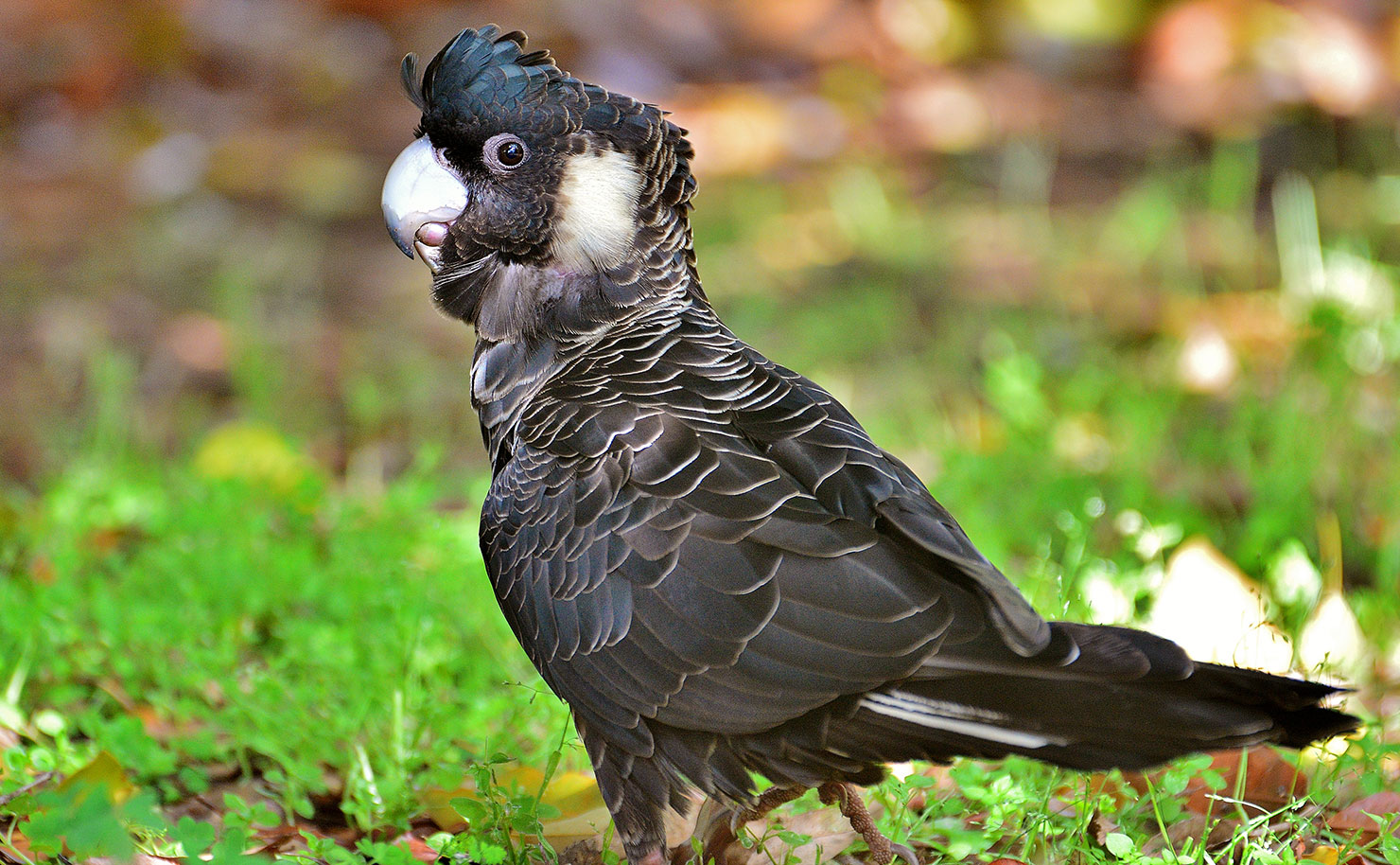
The leaf litter on the ground from the eucalypts alongside the path is interspersed with 21st century lifestyle litter: squashed plastic water bottles, large plastic Coca-Cola bottles, McCafe take-away coffee cups and their plastic lids, Maccas thick shake containers, torn KFC buckets, Hungry Jacks burger wrappers, pizza boxes, plastic zip-lock bags, flattened cigarette boxes, chocolate wrappers, a COVID test, and sheets of toilet paper.
Anger rises in my chest. Why are we still producing and purchasing so much single-use plastic and non-recyclable waste? Who are these careless tossers of rubbish? I feel like picking up all the litter and dumping it back on the multinationals’ drive-thru counters in the fast-food precinct a few kilometres away.
Think global, act local.
Australians are big plastics polluters — we rank second in the world at 59 kilograms (my body weight) per person each year. Most plastic waste is made from fossil fuels and ends up in landfill, and too much ends up in our oceans and rivers choking marine life like dolphins and turtles.
ABC News at 7pm reports on the round-the-nation Anzac Day dawn services and the city parades of diggers in military uniforms decorated with medals — annual events that mourn those who died fighting in war.
Wars wound, maim, traumatise and kill those who fight in the frontlines; they bereave loved ones, and displace and destroy civilian populations, animals, the environment, heritage, and built infrastructure. The psychological imprints and other effects of war ricochet down the generations. Lest we forget.
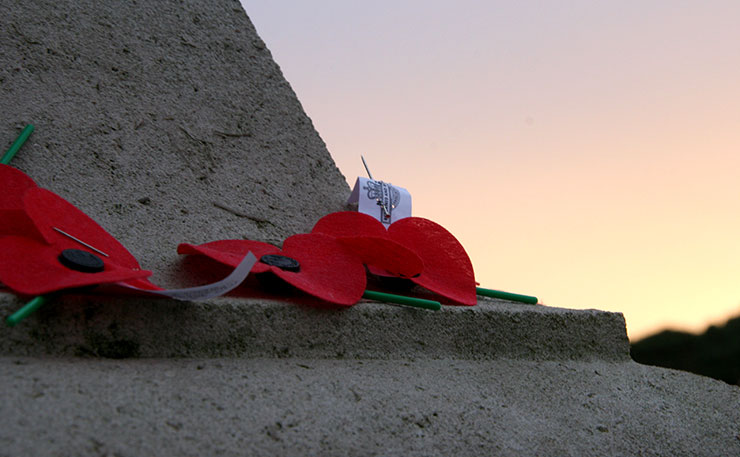
Every other night the news is a bombardment of harrowing and apocalyptic scenes from the deadly war zones of Gaza and Ukraine depicting mass human suffering — people cold, starving, injured, fleeing, and homeless amongst the bombed rubble, the death of thousands of innocent children and adults, and the raw grief and terror of those still alive and under siege. It makes me despair.
What is it about humankind that compels us to repeat the same mistakes over and over? We say “lest we forget” but why don’t we heed the lessons of history? Why do we come so close to the brink of obliteration before we change the course of our destructive ways?
The “idea of death saves us”, according to existential philosophy, if it prompts us to transform the way we’re living. Despite mounting anxiety about the twin existential threats of climate change and war, our survival mechanism doesn’t appear to be saving us from ourselves.
We’re like a pod of pilot whales that’s lost its ability to navigate through dangerous waters and change course, before it’s too late.
Donate To New Matilda
New Matilda is a small, independent media outlet. We survive through reader contributions, and never losing a lawsuit. If you got something from this article, giving something back helps us to continue speaking truth to power. Every little bit counts.

